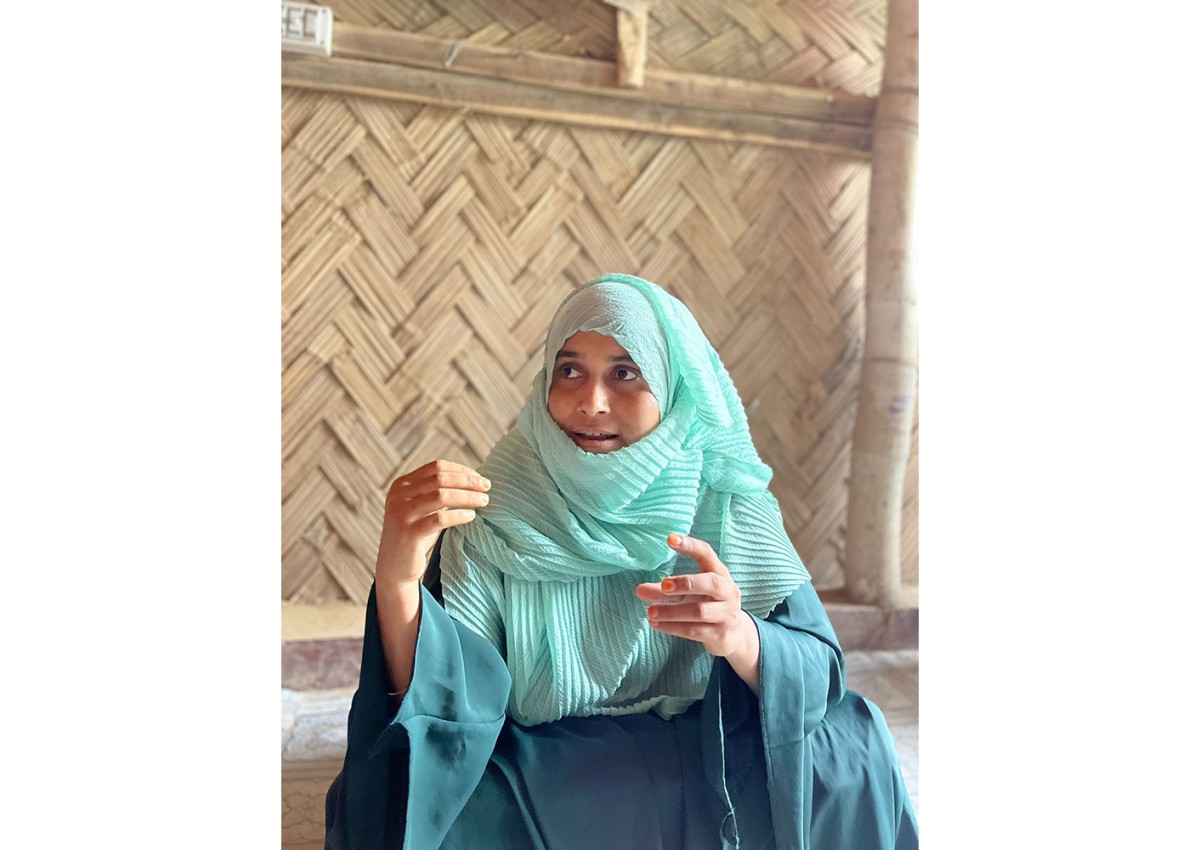





Ayesha Khatun, Program Participant (GBV volunteer), Rohingya Refugee
Ayesha Khatun, who escaped from Myanmar and lives in the Rohingya refugee camps in Bangladesh, is a shining example of strength and resilience. Aged 32, Ayesha is a mother of four and has pursued education up to class eight, according to the Myanmar educational standards.
Upon reaching Bangladesh, Ayesha’s life took a turn for the better as she began to engage with the Women and Girls Safe Space (WGSS) in Camp 16. Ayesha was particularly drawn towards sharing information about violence against Women and Girls within her community and was enthusiastic about contributing positively. This led her to become a member of the Community Outreach Group (CoG). “When I saw CARE’s initiative to employ Rohingya volunteers in the GBV sector, I seized the opportunity and applied for the position. Our selection process was rigorous and involved a review of our educational background, that ranged from basic to intermediate levels. But the candidates who exhibited a passion for social work and demonstrated excellent communication skills were preferred." shared a beaming Ayesha.
Ayesha stood out and was chosen by the board members as a GBV Volunteer. After her selection, Ayesha underwent a series of trainings. She received training on basic GBV, Psychosocial First Aid (PFA), Psychosocial Support Service (PSS), Protection from Sexual Exploitation and Abuse (PSEA), safeguarding policies, household visit system, and referral system. These comprehensive training sessions equipped her with the skills needed to effectively work within the community. “Five years back I was not as confident as I am now. I am fully aware about service locations and what we need. I feel happy and encouraged from my past experiences as a volunteer. I can move around in the camp by myself for my work. Moreover, now I am empowered and earning money which I can contribute for my family; this makes me much proud and happy," said Ayesha with delight.
GBV volunteers are allowed only to provide psychosocial first aid and basic counseling to those who need it. “I attentively listen to the survivors, providing emotional support, while also offering guidance on accessing additional support services. But I also recognize the boundaries of my role. If I come across a case that requires specialized intervention or is beyond my capacity, I follow the established referral system. This involves maintaining confidentiality and efficiently connecting the survivor with appropriate legal support agencies or specialized care providers." shared Ayesha.
Ayesha’s commitment to her role has been phenomenal. She carries out household visits, disseminates information on WGSS services, and manages various activities. Known as Shanti Khanar Apa [sister from WGSS] by the community, her relentless service has earned her immense respect.
The impact of having trained and dedicated GBV volunteers from the Rohingya community such as Ayesha is substantial. This immersive method helps in creating a support system within the community itself. The refugees are more likely to trust and be open to someone from their own community, which can lead to early interventions and support. Moreover, it empowers individuals like Ayesha, who can use their skills and knowledge for the betterment of their community. This contributes to the overall psychological wellbeing of the camp’s residents and fosters an environment of understanding and support.
© Copyright 2026 CARE Bangladesh. Powered By Bangladesh Online